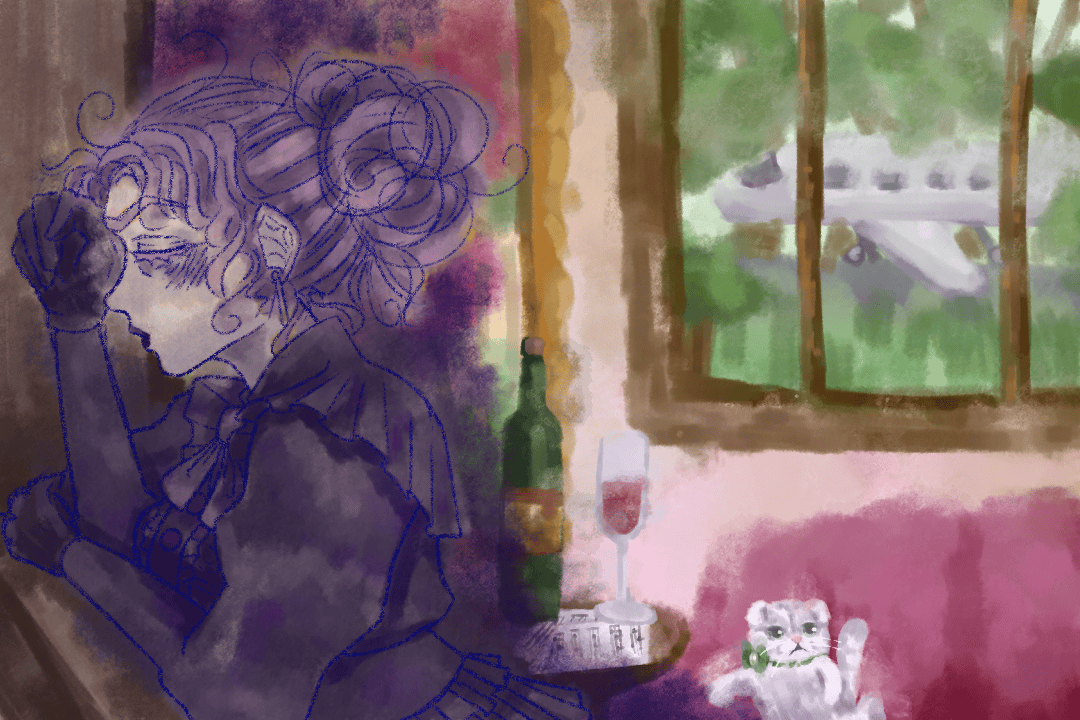Taylor Swift has become a character outside her music, and she knows it. She is a close friend who shares all her intimate secrets with you, a wronged ex-lover seeking revenge, and an untouchable global superstar. Boasting a robust 31-song tracklist, Swift’s 11th studio album, The Tortured Poets Department is a deconstruction of Swift and her life through two acts: a synth-pop first act primarily produced by Swift’s long-time collaborator Jack Antonoff, and a folk-pop second act (dubbed “The Anthology”) mainly produced by rock band The National’s Aaron Dessner.
Tortured Poets is introspective, messy, and tongue-in-cheek. Swift adopts and sheds identities like she does every night on The Eras Tour, putting her lineup of selves and her own life story on the coroner’s table.
The opening track “Fortnight” is downbeat, dreamlike and lethargic, as it sets the stage for the rest of the album by introducing a narrative of broken promises, imprisonment, heartbreak, jailbreak, and an escape to Florida. Swift looks back at a relationship she cannot move on from, even though her life with her ex-lover has become only a brief moment of her past.
While featured artists often take the backseat in Swift’s songs, Post Malone claims a duet during the bridge — the crown jewel of every Swift song. Similarly, Florence and the Machine take centre stage on indie pop track “Florida!!!,” featuring thunderous percussion and a callback to the imagery of cheating husbands and getaway cars from “Fortnight.” This throughline, or the “invisible string” in Tortured Poets is arguably one of Swift’s strongest.
While having produced tracks off of the most praised pop albums of the 2010s, including Lorde’s Melodrama and Lana del Rey’s Norman Fucking Rockwell!, Antonoff has recently earned a reputation for imposing murky indistinguishability on the music he touches, dissolving every song into synth-pop sludge. Many fans find this phenomenon in Swift’s 10th album Midnights to be a result of her frequent collaboration with Antonoff, which created an environment unreceptive to diverse creative approaches.
In The Tortured Poets Department, however, the collaboration between Swift and Antonoff is innovative.
Standout songs that deviate from a traditional synth-pop sound include “Fresh Out the Slammer” with its sultry Western influence and “Guilty as Sin?”’s addictive dream pop tambourine. Antonoff’s signature 80s synths find their perfect fit in the delightfully glittery and upbeat “I Can Do It With a Broken Heart.” Here, Swift describes putting on a smile during a tour despite a crushing breakup, complemented by the sounds of an in-ear backtrack. “I’m so depressed, I act like it’s my birthday every day,” Swift sarcastically chirps in the upbeat, bubblegum pop chorus.
While the album’s lyrics occasionally suffer from being overwrought and uncomfortably struggling to fit into their melodies, most of the tracks are clever and eloquent. Swift is at her best when she is self aware and funny, and The Tortured Poets Department is chock full of winks and nods to those who listen.
“But Daddy I Love Him” is a playful retelling of the hit “Love Story” from her second album Fearless, including the happy ending that the Bard doesn’t afford Romeo and Juliet. However, while “Love Story” was a sincere teenage story of star-crossed lovers, “But Daddy I Love Him” revels in its melodrama, comparing the media scrutiny over her relationships to the judgment of a puritanical small town. “I’m having his baby / No I’m not, but you should see your faces,” sings Swift in the chorus — a friendly jab at her audience.
Among the stripped-back folk-pop of the second half of the album is the poppy “So High School,” a track with a nostalgic late 2000s sound. It describes a love story that reminds Swift of carefree teenagehood and invokes the image of Travis Kelce: Swift’s current boyfriend and Kansas City Chiefs football player.
Swift evokes the romanticism of Fearless through the imagery of Friday night lights and weekend movie dates, presenting both a jokingly juvenile and earnest tone: “Truth, dare, spin bottles / You know how to ball, I know Aristotle.” Swift uses her own cultural dominance to her advantage by winking to those who catch the not-so-subtle jab at Kim Kardashian in “thanK you aIMee” and those who recognize that “Peter” harkens back to the same Peter Pan figure in her eighth album folklore’s “cardigan.”
Swift toys with her public persona throughout The Tortured Poets Department. She is the wrongfully feared omen of the “The Albatross,” the never-believed “Cassandra” of Greek mythology, and “The Bolter” of every relationship. She is the new it-girl “Clara Bow” and the reincarnation of Stevie Nicks in ’75 until the music industry and the public discarded her and someone declared her replacement.
The narrative of Swift’s love life, heavily scrutinized and picked apart, is often first dictated by convenience store tabloids. As the self-directed chairman of The Tortured Poets Department, however, Swift rewrites her own story, even if doing so paints her as petty or obsessive — “All’s fair in love and poetry,” she says in the album prologue. Swift uses her pen to testify in court, to confess her sins, and to present her evidence — to set the record straight.



No comments to display.